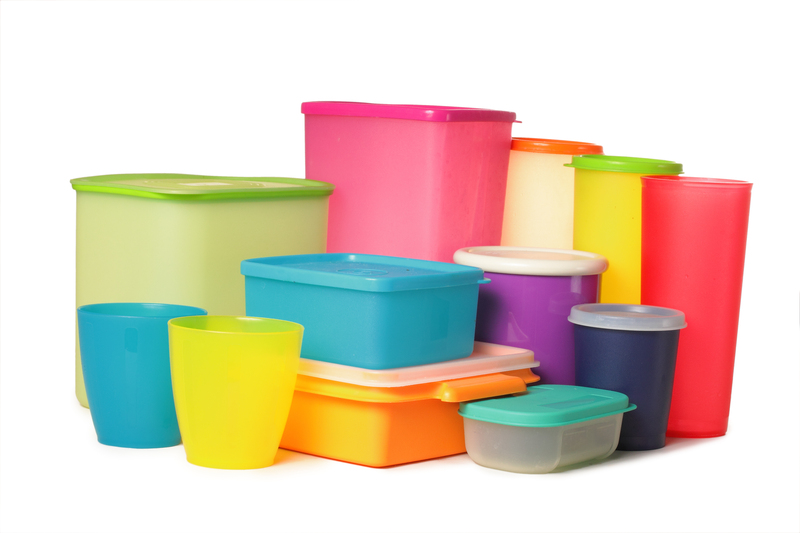Effective Waste Prevention Strategies for Modern Homes
Modern lifestyles generate an unprecedented amount of household waste--plastic packaging, food scraps, electronic gadgets, and even old clothes. Effectively preventing household waste is not just a responsibility but a necessity for environmental conservation and sustainable living. This article explores comprehensive waste prevention strategies tailored for today's homes, designed to reduce, reuse, and rethink how we manage waste.
Why Waste Prevention Matters for Modern Households
Every year, households contribute enormous amounts of waste to landfills. In the United States alone, the EPA estimates that over 292 million tons of municipal solid waste were generated in 2018. Much of this waste could have been avoided with smarter prevention methods. Preventing waste means less pollution, less greenhouse gas emission, and more efficient resource use. Adopting waste prevention strategies at home not only benefits the environment but also leads to significant cost savings and a healthier lifestyle.

Top Waste Prevention Strategies for Modern Homes
This section provides an actionable guide to minimizing household waste through prevention. These methods are suitable for families, individuals, and anyone seeking to lead an eco-friendly lifestyle.
1. Rethink Purchases and Embrace Minimalism
- Plan Before You Buy: Before making a purchase, ask yourself if you truly need the item. Impulse buying often leads to unnecessary waste.
- Quality Over Quantity: Invest in durable, high-quality products that last longer and reduce the need for frequent replacements.
- Minimalist Living: Embrace minimalism by decluttering and sticking to essentials. This lifestyle philosophy curbs overconsumption and fosters a more organized, enjoyable living space.
2. Smart Food Management
- Meal Planning: Weekly meal plans help you buy only what you need and prevent food spoilage.
- FIFO Principle: Use the first-in, first-out method for food storage--consume older items before new ones to reduce waste.
- Store Food Properly: Proper refrigeration and storage extend the lifespan of perishable items.
- Create a Compost Bin: Turn unavoidable food scraps into nutrient-rich compost for your garden.
- Understand Expiry Dates: Many "best by" dates indicate quality, not safety. Use your senses before discarding food.
3. Reduce Single-Use Item Consumption
- Reusable Shopping Bags: Replace plastic bags with sturdy, reusable alternatives made from cloth or recycled materials.
- Switch to Reusables: Invest in products like water bottles, coffee cups, and food containers that you can use again and again.
- Avoid Disposable Kitchenware: Ditch single-use plates, cutlery, and napkins in favor of washable versions.
- Personal Care Products: Choose bar soap, refillable shampoos, and washable makeup remover pads to cut down on packaging waste.
4. Opt for Package-Free and Bulk Shopping
- Buy in Bulk: Purchase groceries such as rice, beans, and grains in bulk to reduce packaging waste.
- Choose Package-Free Options: Many stores now offer package-free goods. Bring your own containers and bags when shopping.
- Support Zero Waste Stores: Shop at outlets committed to zero waste principles whenever possible.
5. Repair, Repurpose, and Upcycle
- Repair Items: Mend clothes, fix electronics, and patch furniture before considering disposal. Many repairs only require basic skills or tools.
- Repurpose Household Items: Old jars make excellent storage containers; worn linens can become cleaning rags.
- DIY Upcycling Projects: Get creative and transform waste into useful or decorative household items.
6. Practice Responsible E-Waste Management
- Extend Electronics' Lifespan: Treat electronics carefully, update software, replace batteries, and repair rather than replace when possible.
- Responsible Disposal: Never throw electronics in the trash. Find certified e-waste recycling centers in your area.
- Donate or Sell: Outdated but functioning devices can be given to schools, charities, or sold online.
7. Switch to Digital Alternatives
- Go Paperless: Opt for digital bills, statements, and subscriptions to cut down on paper waste.
- Read E-Books and Newspapers: Digital media reduces the need for printed materials at home.
- Use Note Apps: Replace sticky notes and notepads with smartphone note-taking apps.
8. Compost Organic Waste
- Home Composting: Composting kitchen scraps and yard waste transforms them into valuable fertilizer while reducing landfill contributions.
- Bokashi or Vermicomposting: Consider compact, odor-free composting systems suited for apartments or small homes.
- Community Composting: If personal composting isn't possible, find a local compost program for organic waste drop-off.
Advanced Waste Prevention Ideas for Sustainable Homes
Implementing Zero Waste Home Design
Modern homes can be designed or retrofitted with waste prevention in mind. For instance, installing energy-efficient appliances, water-saving plumbing, and smart home systems minimizes resource waste. Choose building materials that are recyclable, biodegradable, or made from recycled content.
Streamline Recycling and Waste Sorting
- Set Up a Recycling Station: Dedicate space with labeled bins for recyclables, compostables, and landfill items to make sorting intuitive.
- Educate Household Members: Make sure everyone in the home understands local recycling guidelines to prevent contamination.
- Other Waste Streams: Properly dispose of hazardous waste, batteries, and CFL bulbs at approved collection sites.
Utilize Smart Technology
- Smart Appliances: Energy-efficient fridges and washing machines reduce food and water waste.
- Inventory Apps: Apps help track pantry stock, reminding you to use food before it expires.
- Online Swap Platforms: Use digital marketplaces to exchange, donate, or sell items you no longer need.
Behavioral Changes That Support Waste Prevention
Foster Environmental Awareness
- Educate Your Family: Discuss the importance of waste prevention and get children involved in sustainable practices from an early age.
- Host Eco-Friendly Events: Organize neighborhood swaps, compost workshops, or recycling drives to spread awareness.
Lead by Example
- Be Consistent: Regularly practice and update waste prevention habits; small actions, like carrying a reusable bag, add up over time.
- Motivate Others: Share your successes and tips with friends, family, and online communities to inspire collective action.
Common Barriers to Effective Waste Minimization (And How to Overcome Them)
- Lack of Awareness: Stay informed about local waste management resources, recycling centers, and eco-friendly retailers.
- Convenience Culture: Swap convenience for habits that require minimal extra effort--like prepping shopping bags or using reusables.
- Product Availability: If package-free options are limited, reach out to businesses expressing demand for sustainable alternatives.

Benefits of Effective Waste Prevention Strategies at Home
- Environmental Protection: Reduces pollution, conserves resources, and lowers your environmental footprint.
- Cost Savings: Preventing waste means buying less, reusing more, and stretching your budget further.
- Healthier Lifestyle: Minimizing packaged and processed goods leads to healthier eating and living.
- Clutter-Free Spaces: Less waste equates to a more organized, less stressful home environment.
Conclusion: Start Preventing Waste Today
Adopting effective waste prevention strategies for modern homes is more achievable--and rewarding--than ever. By consciously rethinking our consumption patterns, harnessing smart technology, and making simple, daily eco-choices, every household can drastically cut down waste. Remember: prevention beats cure. Start small, stay consistent, and inspire others. The journey toward a waste-free home benefits your wallet, your health, and our shared planet.
Ready to make a change? Begin with a single step today: Choose one waste minimization strategy from this guide and commit to it. In time, small changes will add up to a cleaner, greener, and more sustainable home.